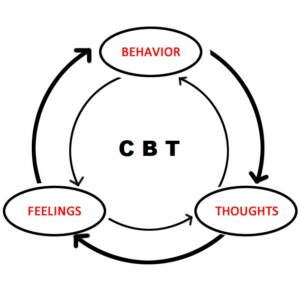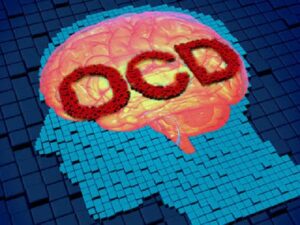Obsessive-Compulsive Disorder (OCD) is a mental health disorder characterized by the presence of intrusive, uncontrollable thoughts and behavior patterns. Refractory OCD is a subtype of OCD where treatment has been unsuccessful and the patient continues to experience severe symptoms. This type of OCD can be incredibly debilitating and difficult to treat. In this article, we will discuss various treatments for refractory OCD, including cognitive behavioral therapy, exposure therapy, and medication management. We’ll also discuss alternative treatments that may prove helpful in managing this condition. By understanding the different treatment options available for refractory OCD, you can begin to gain control over your thoughts and behaviors once again.
Contents
What is Refractory OCD?

There are many different types of OCD, and each one can be debilitating in its way. Refractory OCD is a type of OCD that is resistant to treatment. This means that traditional methods of treating OCD, such as medication and exposure therapy, may not be effective in treating Refractory OCD.
There are a few different theories as to why some people with OCD don’t respond to traditional treatments. One theory is that Refractory OCD is caused by a different underlying cause than other types of OCD. Another theory is that the brain circuitry involved in Refractory OCD is different from other types of OCD, making it harder to treat.
Whatever the cause, if you have Refractory OCD, it’s important to know that you’re not alone. There are many others out there struggling with this same condition. And although traditional treatments may not work for you, there are still other options available. So don’t give up hope – keep searching for a treatment method that will work for you.
Different Types of Refractory OCD Treatment Methods
Treating mental health conditions can involve a variety of different approaches, depending on the type and severity of the condition. Treatment methods can include psychotherapy, medications, lifestyle changes, complementary and alternative therapies, support groups, and self-help strategies.
Psychotherapy
This is a type of therapy that focuses on thoughts, feelings, and behaviors to address mental health issues. Examples include:
Cognitive Behavioral Therapy

CBT is a type of psychotherapy that focuses on changing negative thought patterns and behaviors. It can help identify triggers for OCD symptoms and teach you how to manage them.
CBT works by helping you to understand the link between your thoughts, feelings, and behaviors. It can also help you develop new coping skills for dealing with anxiety and other emotions related to OCD.
Exposure Therapy
Exposure therapy is a type of cognitive behavior therapy that involves gradually exposing yourself to situations or objects that trigger OCD symptoms. The goal of this therapy is to help you confront your fears to reduce the intensity of your symptoms. Also, by doing this, you can learn to better manage your triggers and gain more control over your thoughts and behaviors.
Medication Management
In some cases, medication may be recommended to help treat OCD symptoms. Selective serotonin reuptake inhibitors (SSRIs) are the most commonly prescribed medications for OCD and can help reduce anxiety levels. These medications also help to improve impulse control and thought patterns.
Alternative Therapies
In addition to traditional treatments, there are also alternative therapies that may be beneficial for OCD symptoms. Examples include:
Mindfulness Meditation
Mindfulness meditation is an ancient practice that encourages you to focus on the present moment and become more aware of your thoughts, feelings, and physical sensations. This can help you gain better control over your emotions and behaviors related to OCD.
Yoga

Yoga has been used as a form of treatment for many mental health conditions, including OCD. Yoga helps relax the body and mind, which can provide relief from anxiety symptoms associated with OCD. Additionally, yoga teaches mindful breathing techniques that can help manage stress levels.
Nutrition/Dietary Changes
What you eat can have a big impact on your mental health, so it’s important to pay attention to the types of food that you’re consuming. Eating a balanced diet, limiting your intake of processed foods and sugar, and drinking plenty of water can all help reduce symptoms of OCD.
Exercises
One of the best ways to help manage OCD is through regular physical activity. Exercise can help improve your overall mood and reduce stress levels, allowing you to better cope with OCD symptoms.
Getting Support
Having a strong support system can be very beneficial for those who have Refractory OCD. It’s important to reach out and find people who understand what you’re going through and are willing to listen. Joining a local or online support group may also help provide emotional support and guidance from others who are dealing with similar struggles.
Benefits of Refractory OCD Treatment Method
There are many benefits to treating Refractory OCD, including :
Improved Quality of Life
One of the main benefits of treating refractory OCD is that it can help improve a person’s overall quality of life. By reducing the severity and frequency of their intrusive thoughts, they can live their lives without constantly being overwhelmed by anxious or obsessive behaviors.
Reduced Stress & Anxiety
Another benefit is that treating refractory OCD can reduce stress and anxiety levels. By taking control of their thoughts and behaviors, they can feel more relaxed and in control. This can help them better manage the day-to-day stressors of life, as well as any additional mental health issues that may be causing distress.
Increased Self-Confidence & Self-Esteem
Treating refractory OCD can also help increase a person’s self-confidence and self-esteem. By understanding their condition more, they can begin to accept themselves and feel more comfortable in social situations. This can be especially beneficial for those who may have experienced isolation or difficulty forming relationships due to their OCD symptoms.
Improved Self-Care Habits & Mental Wellbeing
Finally, treating refractory OCD can lead to improved self-care habits, which can greatly improve a person’s mental well-being. With the tools they’ve learned from treatment, they can better manage any intrusive thoughts or anxious behavior that may arise in the future. This helps them stay on top of their mental health and maintain healthy coping strategies long-term. Overall, this leads to an overall better experience of life.
Which Treatment Method is the Most Effective?

There are many different treatment methods for OCD, and it can be difficult to determine which one is the most effective. However, some general guidelines can help you choose the best treatment for your particular situation.
One important factor to consider is the severity of your OCD. If your OCD is mild, you may be able to effectively treat it with self-help strategies or therapy. However, if your OCD is more severe, you may need medication in addition to therapy.
Another factor to consider is your preference for treatment. Some people prefer medication because it is more straightforward and can be taken on an as-needed basis. Others prefer therapy because it can help them understand and work through their OCD thoughts and behaviors.
ultimately, the best treatment for you will be the one that you are most likely to stick with. If you are not sure which treatment method you would prefer, talk to your doctor or mental health professional about your options.
Conclusion
Refractory OCD can be a difficult condition to treat, but there are many treatment options available. Cognitive Behavioral Therapy is especially effective in the management of refractory OCD symptoms and should always be tried first. However, if this doesn’t work other treatments such as medication and Mindfulness-Based Stress Reduction can help too. With the right combination of treatment methods, people with refractory OCD can live full lives free from the symptoms that cause them so much distress.
For more information and guidance, please contact OCDMantra. OCD is a mental health disorder characterized by obsessions and compulsions. If you have any queries regarding OCD treatment, ERP therapy experienced therapists at OCDMantra can help: Book a trial OD therapy session.


